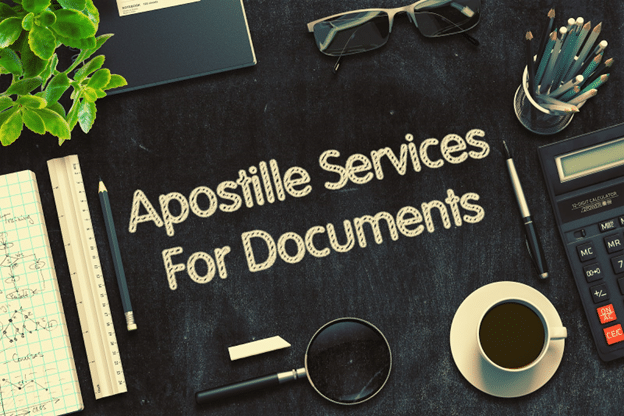Complete Guide to Apostille in Houston, Texas
Wiki Article
Exploring the Factors Behind the Compulsory Requirement of Apostille Qualification for Legal Papers
In the realm of legal documentation, the necessary demand of apostille qualification has become an important aspect that considerably impacts the validity and acknowledgment of lawful documents on a worldwide scale. Understanding the reasoning behind this need includes delving into the complex internet of legal complexities, historic criteria, and worldwide agreements that emphasize the significance of apostille qualification in today's interconnected globe. By discovering the underlying reasons behind this widespread need, a more clear picture arises of why this apparently governmental process holds such immense value for governments, people, and organizations alike.Historical Evolution of Apostille Qualification
How did the concept of apostille accreditation advance over time to become a necessary part of international file recognition? The demand for a simplified approach of validating files for use throughout boundaries came to be apparent as worldwide profession and traveling increased.At first embraced by a couple of European countries, the Apostille Convention progressively obtained worldwide approval because of its effectiveness and efficiency in validating the authenticity of main documents. For many years, the convention's reach increased as even more nations signed up with, identifying the apostille as an universally accepted form of document verification. Today, apostille qualification has actually come to be a standard requirement for confirming lawful documents in global transactions, guaranteeing smooth communication and legal process in between countries.
Simplifying International Paper Legalization
The streamlining of global document legalization treatments has actually considerably boosted efficiency in cross-border transactions. Simplifying the procedure of legislating files for worldwide use has ended up being critical in helping with swift and smooth purchases between countries. One of the vital mechanisms that have contributed to this simplification is the adoption of the Apostille Convention, which supplies a standard approach for verifying the authenticity of files throughout getting involved nations.By sticking to the Apostille needs, nations accept recognize each other's public files as valid without the requirement for further legalization. This gets rid of the prolonged and usually difficult process of numerous verifications by various authorities, conserving time and sources for organizations and people taken part in international tasks.

Making Sure File Authenticity and Legitimacy
To make certain the authenticity and credibility of lawful papers in global deals, rigorous verification procedures are essential. By needing apostille qualification for legal documents, authorities intend to verify the beginning of documents and confirm the trademarks of people involved.Additionally, confirming the authenticity of legal documents through apostille qualification boosts trust fund and self-confidence among parties engaging in global deals. Eventually, by supporting stringent confirmation criteria, apostille accreditation contributes to a more safe and transparent global legal framework.

Facilitating Cross-Border Legal Acknowledgment
In the world of worldwide deals, the apostille accreditation not only guarantees the authenticity and legitimacy of lawful files but additionally plays a crucial duty in promoting cross-border legal recognition (Houston Apostille). When lawful documents bear an apostille certification, they are easily accepted by international authorities without the need for further confirmation. This streamlined procedure quickens the recognition my company of documents in various countries, promoting performance and lowering administrative hurdles in lawful matters that go beyond national bordersPromoting cross-border lawful acknowledgment with apostille certification cultivates trust and confidence in the authenticity of papers traded in between countries. By adhering to the requirements set forth by the Apostille Convention, nations concur to recognize the apostille seals fastened to documents from other member countries, therefore streamlining the procedure of legal recognition throughout boundaries.
Conformity With International Treaty Requirements
Conformity with global treaty standards browse this site is necessary for making certain the consistent application of legal guidelines throughout getting involved countries. The Apostille Convention, developed in 1961, lays out the needs for the approval of public papers amongst member countries. By adhering to the standards stated in this treaty, countries devote to identifying the legitimacy of each various other's official files without the requirement for additional verification - Houston Apostille. This shared acceptance improves the process of cross-border document acknowledgment, advertising effectiveness and minimizing administrative obstacles.The Apostille certification, as mandated by the treaty, works as an assurance of authenticity for records such as birth certifications, marriage licenses, court judgments, and notarized deeds. This standardized approach assists avoid scams and guarantees that lawful documents originating from one participant country are conveniently accepted in an additional. By complying with global treaty standards, countries show their commitment to promoting the principles of openness, trust fund, and collaboration in lawful matters on a worldwide range.
Conclusion

In the realm of legal paperwork, the mandatory demand of apostille accreditation has actually become a vital facet that significantly impacts the credibility and acknowledgment of legal documents on a global range. Today, apostille qualification has become a conventional need for confirming lawful documents in global transactions, making certain smooth communication and legal proceedings in between nations.
Additionally, validating the credibility of lawful records via apostille certification enhances trust and confidence among parties engaging in international transactions.In the world of global purchases, the apostille qualification not just makes certain the credibility and credibility of legal files however also plays a critical role in facilitating cross-border lawful acknowledgment. By sticking to the requirements set forth by the Apostille Convention, nations concur to recognize the apostille seals attached to files from other participant nations, therefore simplifying the procedure of lawful recognition across boundaries.
Report this wiki page